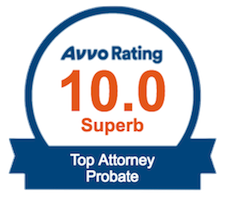Understanding Your Workers’ Compensation Rights – An Informative Guide
Welcome to your comprehensive resource on workers’ compensation provided by Goldberg & Goldberg. Whether you’ve experienced a work-related injury or illness, this guide is here to address pivotal questions and ensure you understand your rights under workers’ compensation laws.
What is Workers’ Compensation?
Workers’ compensation is a system in place to aid employees who encounter job-related injuries or illnesses. While the federal government oversees a program for federal employees and other specific categories of workers, individual states govern their own distinct programs. For contemporary insights into workers’ comp in your locale, please reach out to your state’s workers’ compensation office, and for additional resources, visit the State Workers’ Compensation Officials page on the U.S. Department of Labor’s site.
This insurance mechanism is designed to furnish employees with benefits, regardless of fault in the event of a workplace injury—it could be the employee, the employer, a colleague, a client, or another third party. As part of this agreement, the employee typically forfeits the right to pursue legal action against their employer for said injuries.
Who Finances Workers’ Compensation Benefits?
Most states mandate that employers secure workers’ compensation insurance for their workforce. Small business exemptions may apply, as well as the option for financially robust larger companies to self-insure. When a worker sustains an injury, they would file a claim with the relevant insurance carrier or self-insured employer, which disburses medical and disability benefits predetermined by state-approved formulas.
Are All On-the-Job Injuries Covered?
The majority of workplace injuries fall under workers’ compensation, but injuries that result from intoxication, the commission of serious crimes, off-the-job activities, or overt breaches of company policies are generally not covered.
Is Workers’ Comp Limited to Injuries, or Does It Extend to Chronic Conditions and Illnesses?
Long-term health issues and recurrent strain injuries such as carpal tunnel syndrome or persistent back pain, which surface over time, are also covered by workers’ compensation. Occupational diseases resulting gradually from your work environment, like certain cardiovascular conditions, pulmonary diseases, or stress-related gastrointestinal issues, may also qualify for compensation.
Are You Eligible for Workers’ Compensation Coverage?
Coverage under workers’ compensation is broad, yet some categories of workers, such as business owners, independent contractors, and several others, might be exempt. Confirm with your state law whether you or your occupation might be affected by such exemptions. Federal employees are covered under a separate federal statute rather than state workers’ compensation programs.
Does It Matter Where the Injury Occurs?
No, the location of your injury is not strictly confined to the workplace. Coverage extends to job-related activities, which can include travel for business, errands on behalf of your employer, or attendance at work-mandated social functions.
What Compensation Benefits Can You Expect?
Workers’ comp typically includes income replacement, medical costs, and possibly vocational rehab benefits. Income replacement benefits are tax-free and often set at a portion of your average wage, activated after a few days’ absence due to an applicable injury or illness. For permanent disability, you may be entitled to ongoing or lump-sum payments. Reach out to your local workers’ compensation office promptly, as these benefits can require time to process.
How Do I Get Social Security Benefits for a Permanent Disability?
Should you face an injury or illness preventing you from performing “substantial gainful work” that lasts more than a year or may lead to death, you might be eligible for Social Security Disability benefits. These benefits, challenging to obtain, are allocated to severely injured workers. Contact your local Social Security office if your situation may align with these criteria.
Can I Choose My Doctor?
Depending on the state, you might have the prerogative to see your own doctor if you request this in writing prior to any injury. Otherwise, you may initially be referred to a doctor aligned with your employer. Be cautious; such doctors’ reports hold substantial influence over the provision of your benefits. Should you disagree with the provided doctor’s assessment, you may be entitled to a second opinion or to transfer to your own doctor after a certain period, while the insurer bears the cost.
Can Employers be Sued Over Work-Related Injuries?
Yes, under circumstances involving reckless or intentional actions by your employer, you might be able to bypass workers’ comp and directly sue for compensation, including for pain and suffering. Seek legal counsel to explore this option if applicable.
Can an Employer Retaliate for Filing a Claim?
Retaliating against an employee for filing a workers’ comp claim is illegal in most states. If your employer advises against filing a claim or threatens termination, report immediately to your local workers’ compensation office.
Further Information
For additional details regarding workers’ compensation benefits, contact your state’s office handling workers’ compensation claims.
Remember, Goldberg & Goldberg is here to support you through the complexity of workers’ comp claims. For personalized advice and a Free Consultation, please connect with us at (301) 654-5757. Your rights deserve protection, and our team is ready to help you navigate the path to rightful compensation.




